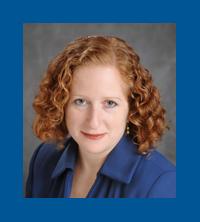Dean Jennifer Mnookin Tells Reuters Legal News in Q&A: California Bar Exam Should Be Easier to Pass

Copyright (c) 2019 Thomson Reuters
Daniel Wiessner
This article is reprinted from Reuters Legal News on Westlaw with permission of Thomson Reuters.
(Reuters) - Thousands of aspiring lawyers are sitting for California's two-day bar exam this week, and the state's legal community will be watching closely to see if a sharp decline in passage rates in recent years continues.
Jennifer Mnookin, the dean of UCLA School of Law, told Reuters in a recent interview that the unusually high "cut score" test takers must receive to pass the state's bar exam is the main culprit for the spike in the number who fail.
Test takers could see a slight bump in this July's scores after state bar officials last weekend accidentally leaked the essay topics that would appear on the exam, Mnookin said. But the confusion resulting from the error could also compound the anxiety many of them have about failing, she said.
California has the second-highest bar exam cut score in the country after Delaware. The pass rate hit an all-time low of 27% for the February 2018 exam, and 40.7% of test takers passed last July. A further decline in the pass rate could reignite a debate over whether California's cut score should be revisited, Mnookin said.
Questions and answers have been edited for clarity and brevity.
REUTERS: What do you think is causing this decline in passage rates?
MNOOKIN: The reason is, pure and simple, because of California's unjustifiably high cut score. The cut score hasn't changed, but there have been a set of changes across legal education and the student body that pose new challenges. One is that the bar exam was created before Lexis and Westlaw, and before we had smartphones, and the memorization-intensive dimension of the bar exam is not a good fit for the Google generation. Lawyers need to know the law and the legal standards, but life is not a closed-book exam.
REUTERS: How does the low pass rate affect law firms?
MNOOKIN: California has an active lateral market and firms are bringing in talented lawyers from other states, (often) fourth or fifth-year associates who are rising stars. They move to California and proceed to fail the bar exam. That is enormously costly for that person and the law firm, and it's also head-scratching. The idea that these folks are not minimally competent to practice law is belied by the excellence they have shown in the practice of law.
REUTERS: How does the high cut score affect minority test takers?
MNOOKIN: The bar has released data on diversity, and it shows that this elevated cut score is having a disproportionate effect on minorities in general. A disproportionate number of diverse bar takers are in that space right between the national average and California's cut score, so if they had taken the exam in another state they would've passed and would be getting on with their law careers.
REUTERS: Do you think the leak of essay topics will have any effect on this year's passage rate?
MNOOKIN: It arguably might give July 2019 bar-takers a minor advantage over California bar takers past and future, as one of the major challenges of the bar exam is the substantial cognitive load that comes from having to prepare for so many topics. But I do think California's high cut score makes this snafu even more acute than it would otherwise have been. Bar takers know only too well that California has set its atypical and unjustified cut score in a place that puts loads of competent lawyers at risk of failing. So an error like this adds further worry and unease to a group that's already enormously stressed.
REUTERS: Has there been any serious effort in the past to change the cut score?
MNOOKIN: In 2017, the deans of 21 law schools asked the California Supreme Court to consider lowering it. The California Bar held hearings and made a recommendation either to maintain the status quo or modestly decrease the cut score. The court in late 2017 decided not to act, but they indicated an openness to revisiting the question when there is more information. Now we're hoping that after a couple more years of very low pass rates, coupled with (the California Bar's recent report), the court will decide to take another look.